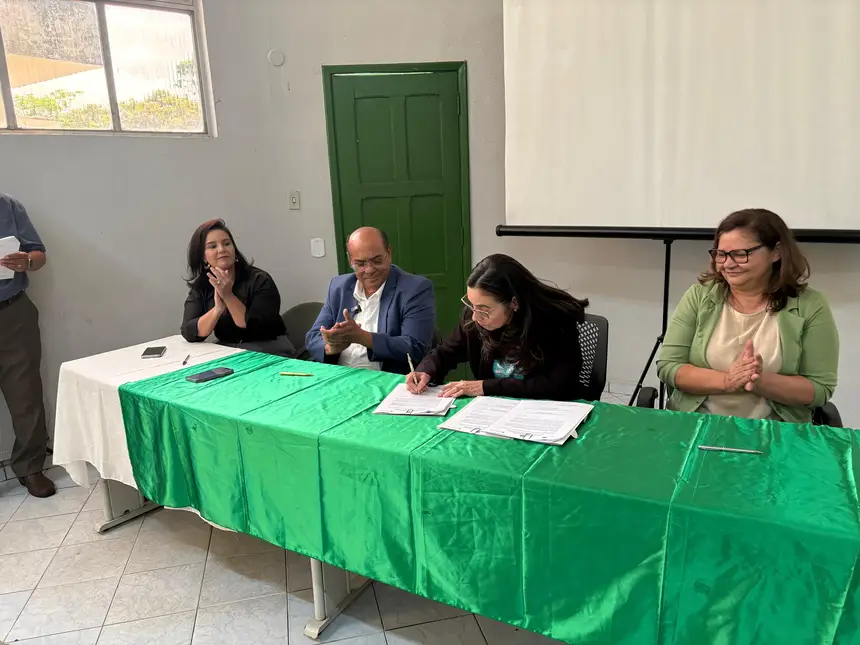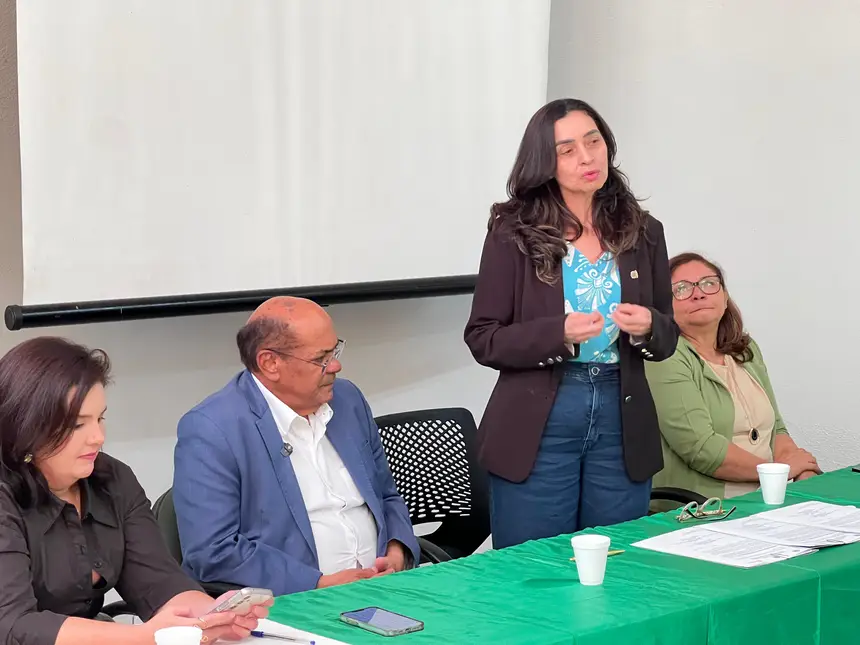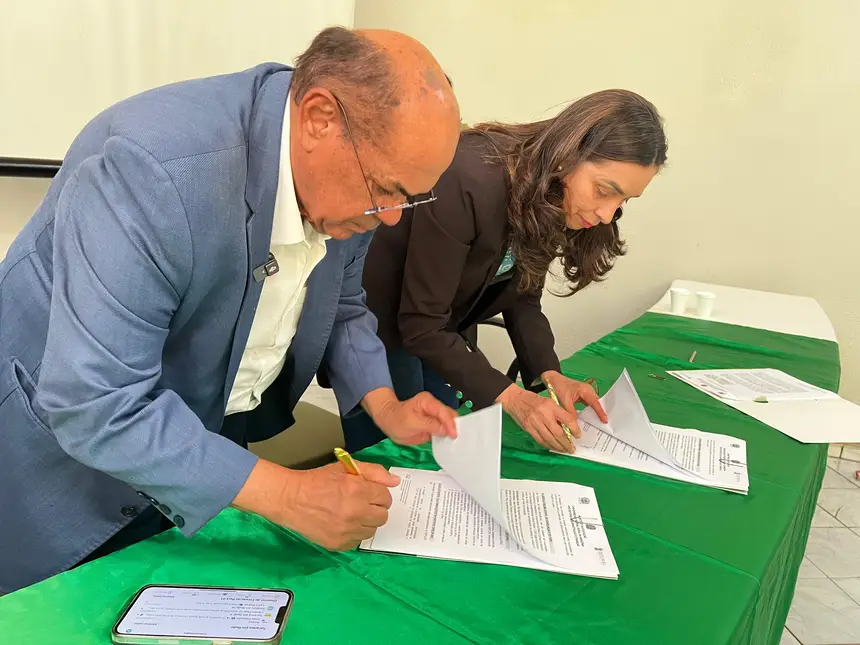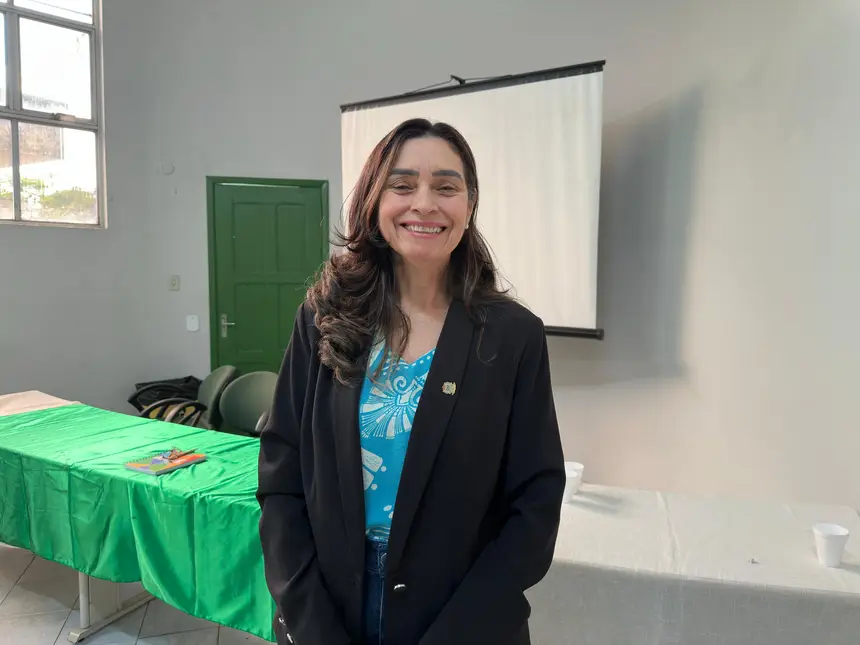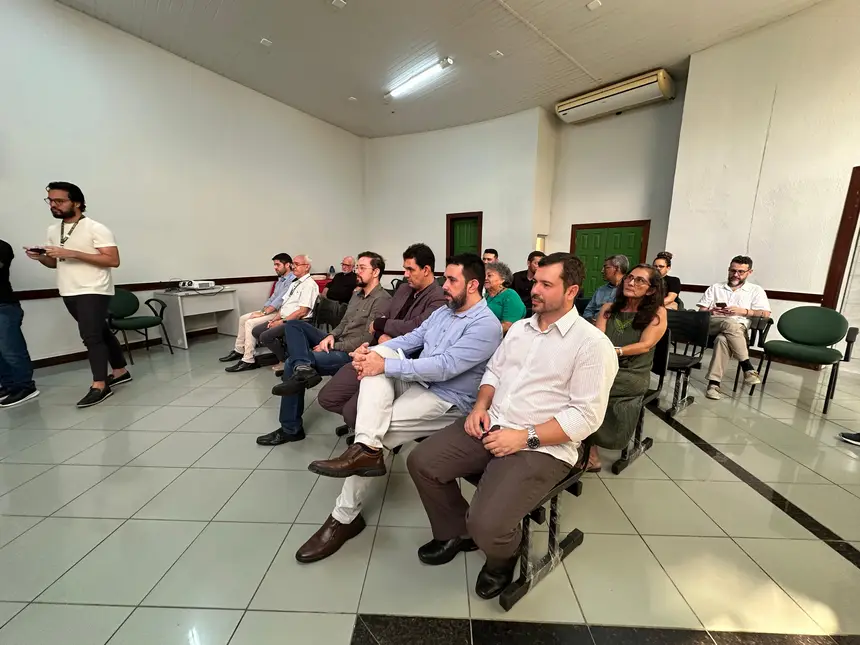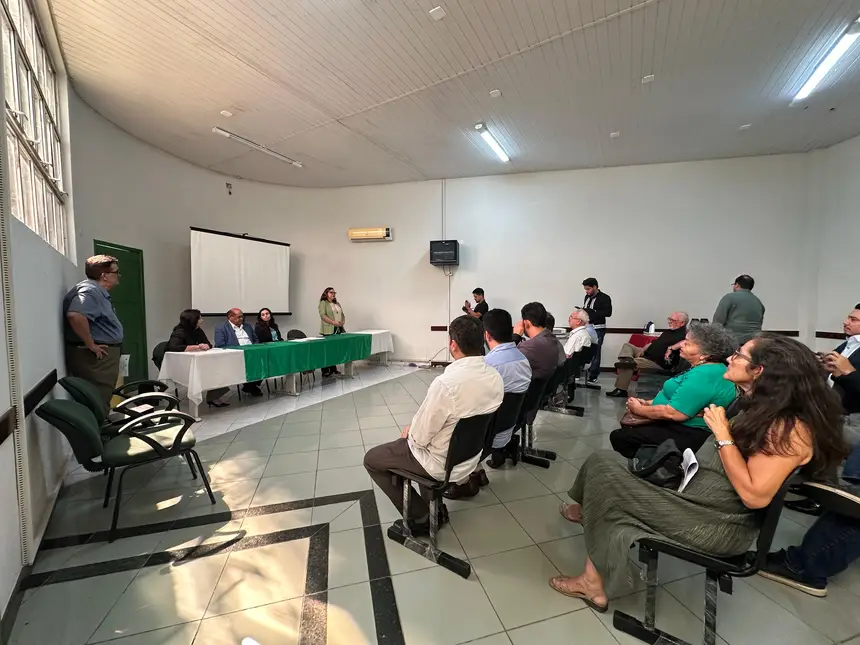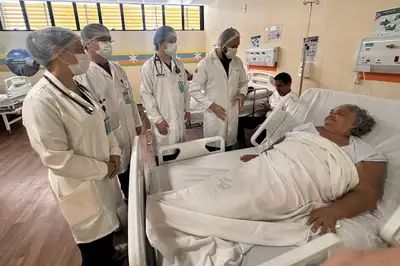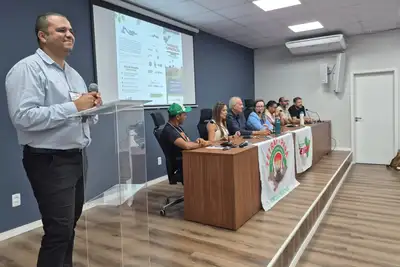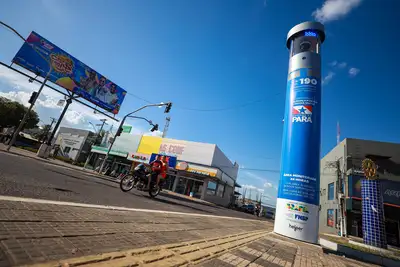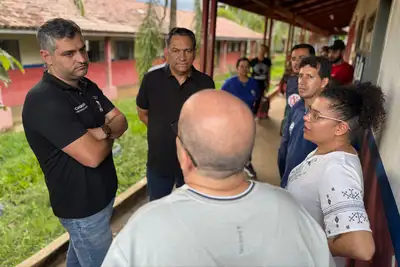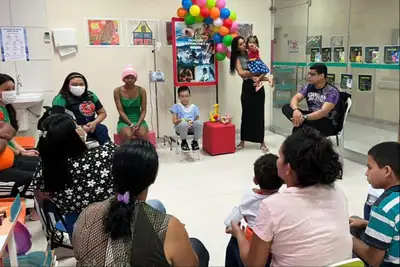Ideflor-Bio and Ufra establish cooperation to strengthen research, bioeconomy, and forest management
Actions aimed at bioeconomy, ecological restoration, community and family forest management are planned, in addition to the integration of teaching, research, and extension in the Amazon context.
The Institute of Forest Development and Biodiversity of Pará (Ideflor-Bio) and the Federal Rural University of the Amazon (Ufra) signed, this Monday (18), the Technical Cooperation Agreement (ACT) that establishes a strategic partnership for the development of joint activities in science, education, and technology. Actions aimed at bioeconomy, ecological restoration, community and family forest management are planned, in addition to the integration of teaching, research, and extension in the Amazon context.
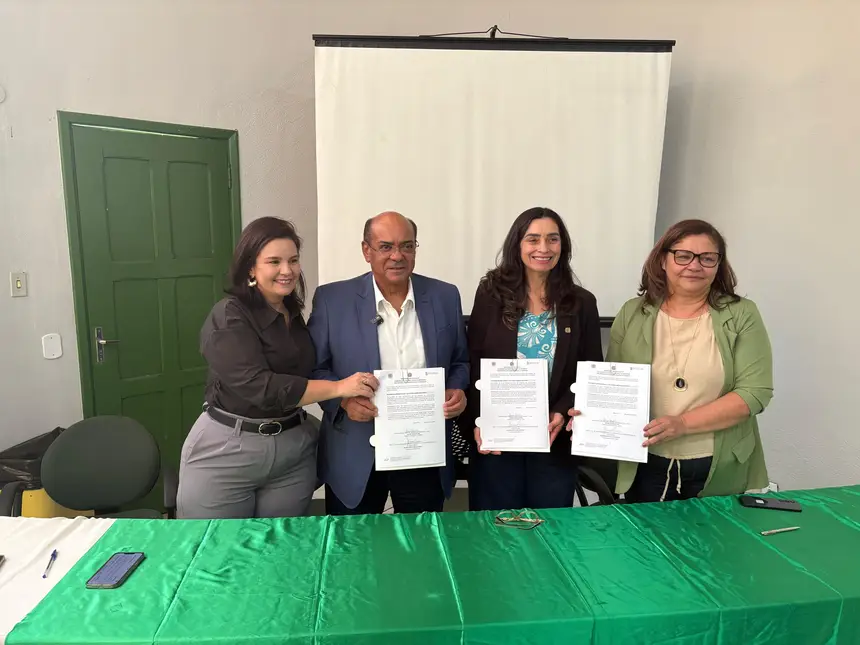
The agreement was signed by the president of Ideflor-Bio, Nilson Pinto, and the pro-tempore rector of Ufra, Professor Janae Gonçalves, who emphasized the importance of institutional rapprochement. The document establishes as its main objective the development and execution of joint projects in areas related to agricultural sciences and biodiversity conservation. To this end, a specific Work Plan will be developed, which will guide the actions of the technical teams of both institutions, allowing for the monitoring of results and the reformulation of goals whenever necessary.
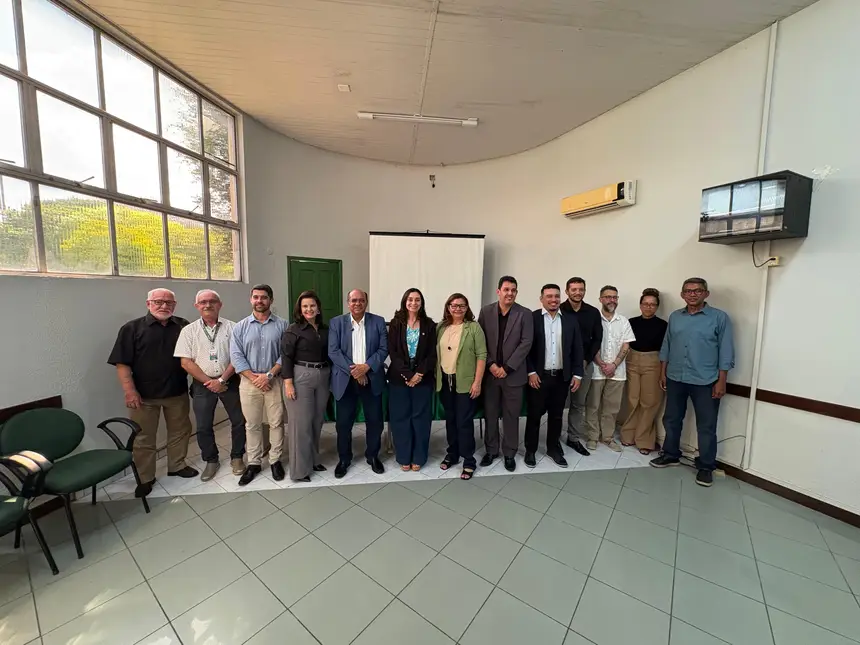
According to the ACT, Ufra will be responsible for proposing research and extension projects in areas of common interest, in addition to enabling the participation of undergraduate and graduate students in field activities in areas managed by Ideflor-Bio. The Institute will be responsible for receiving and supporting students, researchers, and professors from the university, ensuring infrastructure and access to state conservation units.
Partnership - The president of Ideflor-Bio, Nilson Pinto, highlighted the strategic role of cooperation for strengthening science applied to environmental management. “This agreement is a milestone for Pará, as it allows the academic production of Ufra to be experienced in our forests and conservation units. The environment benefits, students benefit, and the communities living around these areas also benefit, as they will have access to innovative solutions developed together,” he stated.
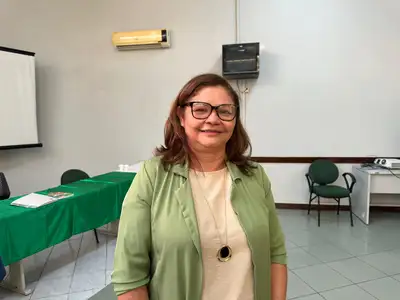
The director of the Institute of Agricultural Sciences (ICA) of Ufra, Professor Gracialda Ferreira, emphasized the relevance of the initiative for academic training. “The partnership is fundamental because it combines the research and extension capacity of the university with the practical space that Ideflor-Bio offers. Our students will have the opportunity to experience the reality of the field and work alongside Amazonian communities, while researchers will be able to develop studies on a regional scale, something still little explored in the Amazon,” she highlighted.
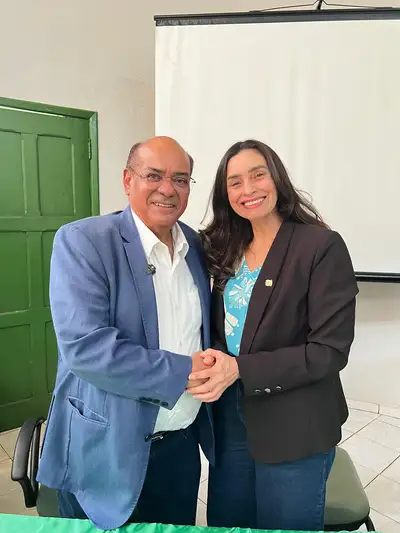
Benefits - The pro-tempore rector Janae Gonçalves reinforced that the cooperation will bring benefits to Pará society. “We are building a bridge between the university and public environmental management, transforming knowledge into concrete actions. This ACT strengthens our mission to be a multi-campus institution connected with the demands of the territory, promoting advances that involve students, faculty, staff, and local communities,” she assessed.
The execution of the Agreement will be coordinated by Professor Gracialda Costa Ferreira, from Ufra, and by Ana Claudia Simoneti, from the Directorate of Public Production Forest Management, from Ideflor-Bio. They will be responsible for monitoring the implementation of activities, organizing meetings, and producing joint reports on the results obtained.
The expectation is that the first integrated projects will begin to be implemented in 2025, consolidating a network of knowledge and practices that contribute to the preservation of the Amazon and the training of professionals prepared for the socio-environmental challenges of the region.



